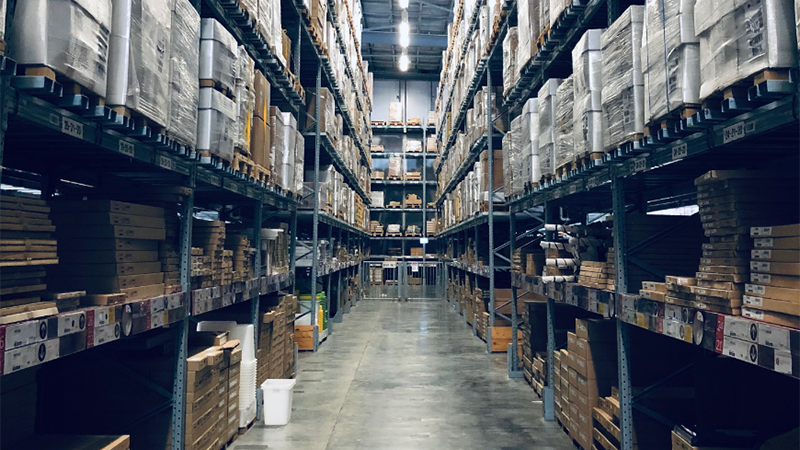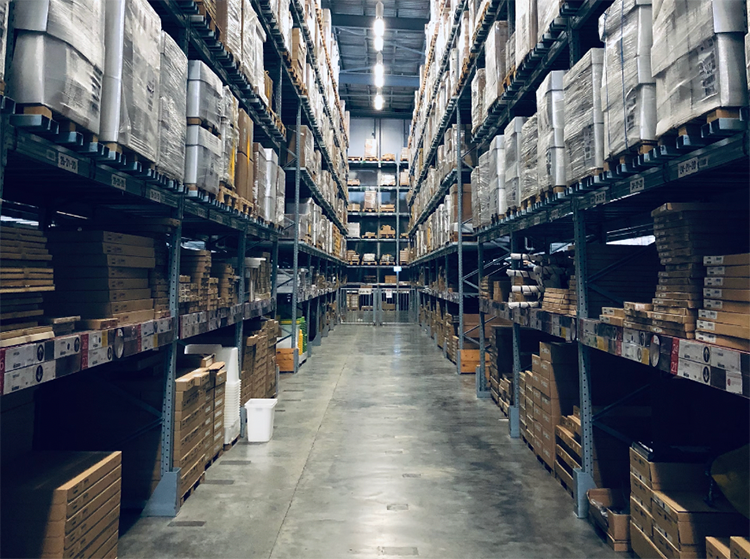
You may have heard the terms self-storage and warehouse storage used interchangeably. However, there are numerous differences between these storage solutions. For instance, a self-storage facility is ideal for personal items. On the other hand, a warehouse storage facility is used for commercial or industrial storage purposes. When choosing between a self-storage unit and a warehouse storage facility, there are several factors we are going to discuss to help make the best decision.
Warehouse Storage
There are several types of warehouse storage solutions: wire partitions, static shelving, multi-tier racking, mobile shelving, mezzanine flooring, and pallet racking. Warehouse storage units are ideal for wholesalers, retailers, transporters, exporters, and manufacturers.
You can rent an entire facility or specific space to fit your needs. The main goal of a warehouse is to optimize the use of storage space, guarantee access to products when they’re requested, leverage handling equipment, and ensure optimal organization of storage. Warehouse storage facilities have high ceilings to accommodate large, oddly-shaped equipment. In addition, warehouse providers typically offer heated space to prevent freezing items.
Pros
- 24/7 surveillance
- Heated Space
- Unique storage solutions
- Sufficient storage space
- Scalability to expand or contract
- Final Mile Delivery
Cons
- More Expensive
- Less direct control
- Determining the type of storage needed

Self-Storage
There are various types of self-storage units: drive-up storage, 24-hour storage, climate-controlled storage, student storage, vehicle storage, military storage, portable storage, and business storage. Self-storage units offer private storage space to households, individuals, and small business owners.
Unlike warehouse storage, you can access your self-storage space 24/7. Self-storage facilities are ideal for storing unused items both in homes and offices. For instance, you can store unused furniture and office equipment in a self-storage facility before reselling or donating them. Some of the items that aren’t permitted in a self-storage facility include unregistered vehicles, hazardous materials, live plants, weapons, perishables, and live animals.
Pros
- Cost-effective
- Individual convenience
- Portable storage solutions
- Easily accessible: 24-hour access
Cons
- Limited space
- You have to maintain inventory
- Security can be an issue
- You can’t store everything
Differences Between Warehouse Storage & Self-Storage
1. Storage Space
Based on storage space, warehouse storage facilities are quite large, whereas self-storage units are smaller. This is the main reason why self-storage units are ideal for personal and small business needs. On the other hand, warehouse storage space is perfect for large pieces of equipment and large amounts of goods. Large companies should opt for warehouse storage space, whereas someone storing personal items should lease a self-storage unit.
2. Scalability
Warehouse storage allows you to easily scale space up and down based on the supply and demand and inventory of your business. Warehouse storage also allows you to focus on your business while the warehousing company helps manage your inventory. Self-storage is managed by you, can fill up quickly, and is not easy to scale to more space.
3. What Can Be Stored
You can store heavy industrial equipment and large amounts of goods in a warehouse storage space. On the other hand, you can store business items and personal items in a self-storage unit, depending on the size of the storage space. Unlike a self-storage unit, you may be able to store perishables, some hazardous materials, and vehicles/equipment in a warehouse.
4. Security
Most good warehouse storage facilities should have 24/7 security to ensure inventory and stored items are safe. On the other side, self-storage facilities have padlocks and gates to deter people from breaking into facilities, but unfortunately, it can still happen.
5. Cost
Warehouse space is typically more expensive because of the large space and inventory management needed to run an effective warehouse. Self Storage units are typically less expensive because they are self-managed and are intended to be affordable for individual use.
Self Storage Vs Warehouse Storage: Which is the Best?
Both self-storage and warehouse storage have pros and cons; therefore, choose a storage unit that suits your budget, needs, and preferences. If your business is growing and you want a storage solution that allows you to scale and helps you manage inventory then warehouse storage space would be ideal. If you are a small business or individual and looking for space to store small items then self-storage would be a better option.
Storage Solutions in Boston & the Surrounding Massachusetts Area
If you are looking for storage solutions in Boston or the surrounding areas, Marks Moving and Storage will be able to help determine the best solution for you. Call us at 508-983-6000 or request a storage estimate here.
